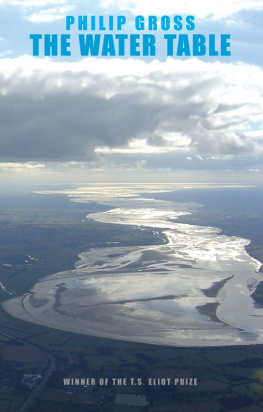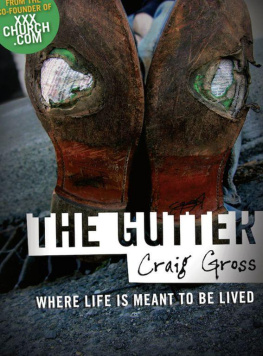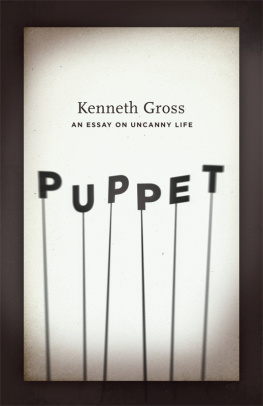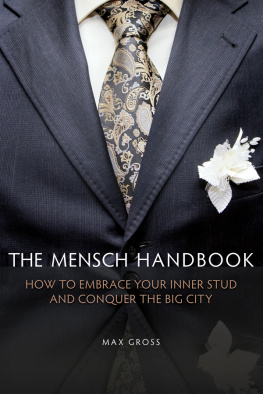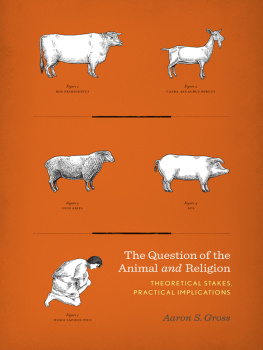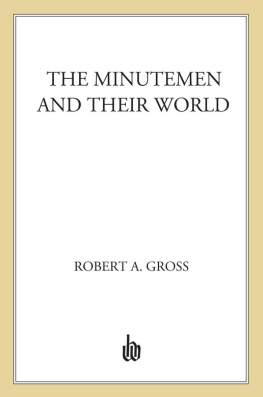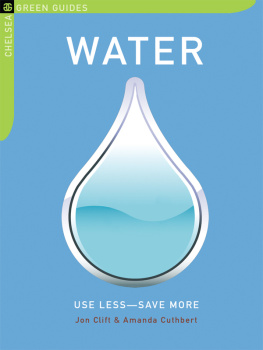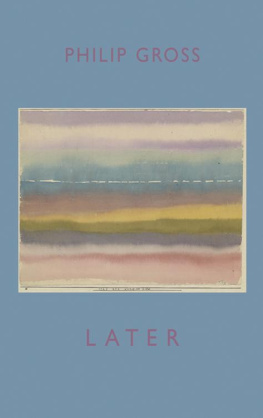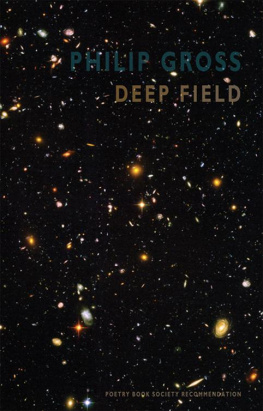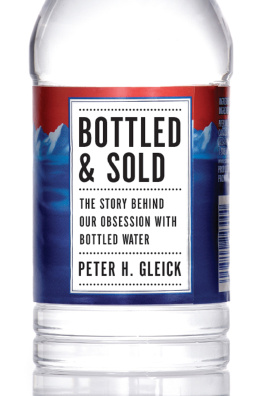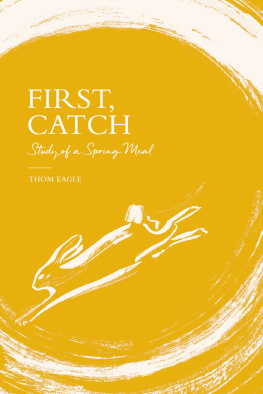THE WATER TABLE Winner of the T.S. Eliot Prize A powerful and ambiguous body of water lies at the heart of these poems, with shoals and channels that change with the forty-foot tide. Even the name is fluid from one shore, the Bristol Channel, from the other Mr Hafren, the Severn Sea. Philip Grosss meditations move with subtle steps between these shifting grounds and those of the man-made world, the ageing body and that ever-present mystery, the self. Admirers of his work know each new collection is a new stage; this one marks a crossing into a new questioning, new clarity and depth. A book of great clarity and concentration, continually themed but always lively and alert in its use of language.
Gross takes us from Great Flood to subtly invoked concerns for our watery planet; this is a mature and determined book, dream-like in places, but dealing ultimately with real questions of human existence Simon Armitage, T.S. Eliot Prize judges comment. Great poetry is like walking on water. In this paradoxical, humane collection, Philip Gross achieves that miracle Polly Clark, Guardian.
Haunting, vividly imagined poems, whose fierce intelligence is gentled by the sonorous grace of the language A considerable poetic talent offers us an elegant and subtle re-evaluation of the modern world Sarah Crown, Guardian.
Some of the poems are marvellous, not because they are brave about their subject, not even because of the technique on display , but because they are electrifyingly well observed and beautifully written David Morley, Poetry Review. Cover photograph by Graeme Scott For Zlie, and for all our families: the sky is in the house and all the doors are blowing open
Acknowledgements are due to the editors of the following publications in which some of these poems first appeared:
Blackbird, The Bow-Wow Shop, Contourlines (Salt Publishing, 2009),
Feeling the Pressure: poetry and science of climate change, ed.
Paul Munden (British Council, 2008), Friends Quarterly, London Magazine, Magma, Moment of Earth: poems and essays in honour of Jeremy Hooker, ed. Christopher Meredith (Celtic Studies Publications, 2007), New Welsh Review, Pendulum: The Poetry of Dreams, ed. Deborah Gaye (Avalanche Books, 2008), Planet, Poetry Daily, Poetry Review, Poetry Wales, The Rialto, Scintilla, Smartish Pace, Smiths Knoll, Stand, Swansea Review and Warwick Review.
Low tide at the sea lock, a forty foot drop to muddy shallows One boats width of channel that the dredger grubs up daily Silt to one side scored in circles where they dragged for dont ask what The tall shut doors of the hall of the world at which the weight of water, of incipience, does not need to knock: feel it there like a shudder of difference, the engine of change. Now, almost soundless, hinges shift. With a gradual calibrated rip like a concord of lathes, with a crypt smell, two green-grey-brown stiffening blades of water fold in.
A body of water: waters body that seems to have a mind (and change it: isnt that what makes a mind, its changing?) not much prone to thinking rather, thoughts curl through it, salt or fresh, or hang between states; sometimes gloss the surface with their oil-illuminations.
A body of water: waters body that seems to have a mind (and change it: isnt that what makes a
mind, its changing?) not much prone to thinking rather, thoughts curl through it, salt or fresh, or hang between states; sometimes gloss the surface with their oil-illuminations.
Wind-worried to dullness, pulled two ways (earth and moon like parents not quite in accord), unquiet body, it can never quite lay down its silt; always trying to be something other, to be sky, to lose itself in absolute reflection.
Mud, the megatonnage of it, moving in suspension, heavy haulage, to and fro. A weight you can see, the way it stands off the Point, its deep whorls scarcely moving, scarcely filling: clay shapes turned on a wheel, leather hard already. One spins off now like a slow world, like a question about nothing it can put a name to, an expression that leaves home in search of a face of its own.
Note to self: might have to work to break the beauty of white pages: not much gets conceived on an unsullied sheet. Might have to sweat it a bit not,
not in bounden duty but with all the ruthless lack of circumspection of pure play * (that night for instance in my parents plasterboard box-room when we let a whey-faced moon loom in on us all night, its low arc the width of the window, nudging the cloud-flow, shift and-shuffling its shadows of us on the wall behind the bed, those above-and-beyonders, other-lovers, the immortals on the white sheet of the shadow-puppet screen and us the crouched mechanicals beneath who give themselves up, hands, eyes and skill, as their parents did and theirs and theirs, to make themdare I say
real?) * Some mornings I find spider-writing on my bedside pad as lucid as a doctors script.
No, dreams are not the mystery. The thing is waking. Note to self from other: Here, today let us misunderstand each other giftedly.
One day the sea thought
No. It wouldnt. Just wouldnt.
It withdrew to the doors of the straits, like an Ice Age instituted overnight, like an empire in-turned behind walls of glittering indifference to the mess outside. And where did that leave us? Facing into the space between redundant coastlines space, a vast parcel wed come down to find at the ring of a doorbell, nobodys birthday, and giftwrapped in silksilver mud. The seabed smell had started rising, that of secrets being out; like any seedy leakage in the press there would be more to come. It wasnt the way we had dreamed it: alluvial pastures unfolded from our inward valleys, restored from our national childhoods. Those whod hoped for free smallholdings for the homeless, and those already drafting the adverts for Atlantis World, wed all be disappointed. As the sun came up it was already baking, the mud going matt, then wrinkling, firing itself like epic pottery.
Tiny islands came into their own, as grass-topped mountains, the one with the lighthouse a marvel: Monte Lucia, heraldic. Trickles cut down deep in muddy gulches, going on for canyons. Round the middle slopes, the beaches were considering a new career as archaeology, waterfront apartments rebranding themselves as mountain villages like Tuscany. The piers seemed naked, their black-weedy legs embarrassing, due for a shave. Work redoubled on long-planned sea walls in case rains washed us down in mudslides like some peasant valley worlds away; we didnt want to go there. Somebody was bussing in scanty-paid somebodies-else already, to pick across the wastes with hammers, chipping out crabs, skirting the bones of burials at sea, a horse, a child from steerage; then that crop was gone.
A few sunk ships were there to be avoided like war graves and, as if that had jogged some recollection, each side sent in surveyors, just to clarify the border. Seeing which, a discreet small column followed, lightly armoured, as the wind got up and mud dust started swirling round them, like in any desert, and first shots were fired, as a precaution mainly. The sea gave an audible sigh and came back in.
: glass stepping stones, flat topped, level with the water, so on mornings after, when a low mist frosts the lake, the host walks out towards the island where black coffee waits; he calls the guests, o ye of little faith, to join him. : a rain-gazebo with a narrow ceiling-well and a grille in the floor, so whatever the sky sends stands in our midst, passing through, a slim visitor, greyish and graceful and slightly distrait. : a salmon treadwheel where the fish in season thrashes up the water-stair, bucket by bucket, each time tripping the house-high millwheel down a click. : a salmon treadwheel where the fish in season thrashes up the water-stair, bucket by bucket, each time tripping the house-high millwheel down a click.

